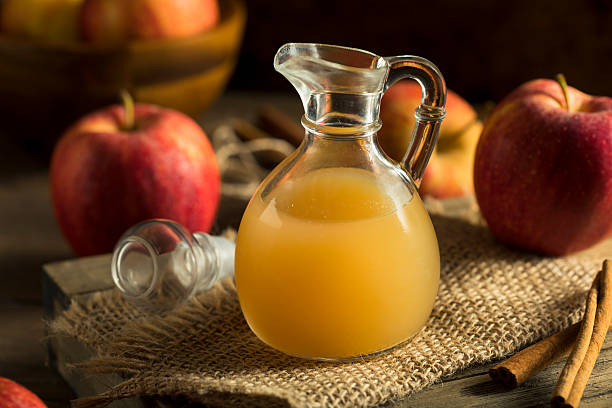When using anabolic steroids to enhance muscle growth, strength, or performance, your diet plays a critical role in maximizing results while minimizing side effects. Certain foods can exacerbate the side effects of steroids or hinder your progress by promoting fat gain, water retention, or other health complications.
This article outlines the foods you should avoid while on steroids, explains why they can be harmful, and provides healthier alternatives to support your fitness goals.
Why Diet Matters on Steroids
Anabolic steroids alter the body’s hormonal balance and metabolic processes. While they amplify muscle growth and recovery, they can also lead to side effects such as:
- Water retention and bloating.
- Increased cholesterol and blood pressure.
- Elevated blood sugar levels.
- Liver strain, especially with oral steroids.
By avoiding certain foods, you can help mitigate these risks and create an environment that supports muscle growth and overall health.
Foods to Avoid While on Steroids
1. High-Sodium Foods
Steroids can increase water retention and cause bloating. High-sodium foods exacerbate this effect, leading to puffiness and masking muscle definition.
Avoid:
- Processed foods like chips, frozen meals, and canned soups.
- Salty snacks such as pretzels and salted nuts.
- Fast food and restaurant meals with hidden sodium.
Healthier Alternatives:
- Opt for fresh, whole foods seasoned with herbs and spices instead of salt.
- Choose low-sodium versions of canned or packaged items.
2. Sugary Foods and Beverages
Steroids can elevate blood sugar levels, increasing the risk of insulin resistance and fat gain. Sugary foods contribute to these issues and can derail your fitness goals.
Avoid:
- Sweets like candy, cookies, cakes, and pastries.
- Sugary beverages such as soda, energy drinks, and sweetened coffee.
- Processed cereals and flavored yogurts with added sugar.
Healthier Alternatives:
- Choose natural sweeteners like stevia or monk fruit.
- Satisfy sweet cravings with fresh fruits like berries, apples, or oranges.
3. Refined Carbohydrates
Refined carbs cause blood sugar spikes and contribute to fat storage, especially when your caloric intake is already high during a bulking phase.
Avoid:
- White bread, pasta, and rice.
- Pastries, bagels, and crackers made with refined flour.
- Packaged snacks like cookies and chips.
Healthier Alternatives:
- Choose complex carbs like oats, quinoa, brown rice, and whole-grain bread.
- Focus on fiber-rich carbs like sweet potatoes and legumes to maintain steady energy levels.
4. Fatty and Processed Meats
Fatty cuts of meat and processed meats can negatively impact cholesterol levels, which are already at risk of imbalance when using steroids.
Avoid:
- Bacon, sausages, and hot dogs.
- Fatty cuts of beef or pork.
- Fried meats or poultry with the skin.
Healthier Alternatives:
- Choose lean protein sources like chicken breast, turkey, fish, and egg whites.
- Incorporate plant-based proteins like tofu, lentils, and chickpeas.
5. Trans Fats
Trans fats raise LDL (bad cholesterol) and lower HDL (good cholesterol), increasing the risk of cardiovascular issues, which steroids can already amplify.
Avoid:
- Fried foods like French fries and doughnuts.
- Packaged baked goods like muffins and pies.
- Margarine and shortening.
Healthier Alternatives:
- Use healthy fats like olive oil, avocado oil, and coconut oil for cooking.
- Snack on raw nuts, seeds, or avocados for a healthy fat boost.
6. Alcohol
Alcohol places additional strain on the liver, especially when combined with oral steroids like Dianabol or Winstrol, which are hepatotoxic. It also dehydrates the body and interferes with muscle recovery.
Avoid:
- Beer, wine, and spirits.
- Mixed drinks with sugary mixers.
Healthier Alternatives:
- Stick to water, herbal teas, or electrolyte drinks for hydration.
- If you must drink socially, limit consumption to minimal amounts and stay hydrated.
7. Dairy with High Saturated Fat
Full-fat dairy products can contribute to cholesterol imbalances and fat gain, making them less suitable during a steroid cycle.
Avoid:
- Whole milk, cream, and butter.
- Full-fat cheeses and ice cream.
Healthier Alternatives:
- Opt for low-fat or fat-free dairy options like skim milk, Greek yogurt, and cottage cheese.
- Use plant-based milk alternatives like almond or oat milk.
8. Excessive Caffeine
While caffeine in moderation can enhance energy and focus, excessive consumption may elevate blood pressure and cause dehydration, both of which can be exacerbated by steroids.
Avoid:
- Energy drinks with high caffeine content.
- Drinking more than 2-3 cups of coffee daily.
Healthier Alternatives:
- Choose green tea for a milder caffeine boost.
- Stay hydrated with water or herbal teas.
9. Artificial Sweeteners and Additives
While often marketed as healthy alternatives, artificial sweeteners and additives can disrupt gut health and may lead to cravings for unhealthy foods.
Avoid:
- Diet sodas and sugar-free snacks with artificial sweeteners like aspartame.
- Packaged low-calorie desserts.
Healthier Alternatives:
- Use natural sweeteners like honey or maple syrup in moderation.
- Focus on whole, unprocessed foods for a clean diet.
Tips for a Steroid-Compatible Diet
To optimize your health and gains while on steroids, follow these additional tips:
- Prioritize Protein: Build your diet around lean protein sources to support muscle growth and repair.
- Eat Whole Foods: Focus on nutrient-dense, minimally processed foods to fuel your body and support recovery.
- Stay Hydrated: Drink plenty of water to flush out toxins and maintain hydration, especially if steroids increase water retention.
- Monitor Sodium Intake: Keep sodium levels in check to minimize bloating and high blood pressure.
- Track Macronutrients: Balance your protein, carbs, and fats to match your fitness goals, whether bulking or cutting.
Final Thoughts
Diet plays a crucial role in maximizing the benefits of steroids while reducing potential side effects. Avoiding foods high in sodium, sugar, trans fats, and other harmful components helps create a healthier environment for muscle growth, fat loss, and overall performance.
Ask yourself: Am I making choices that support my health and fitness goals? With the right dietary adjustments, you can enhance your steroid cycle’s effectiveness and protect your long-term well-being.






